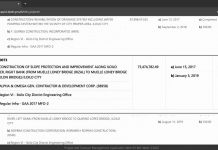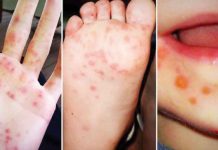ILOILO City – Confirmed cases of coronavirus disease 2019 in this city are now required to undergo repeat reverse transcription polymerase chain reaction (RT-PCR) test.
COVID-19 patients are mandated to adhere to this new rule under Mayor Jerry Treñas’ Executive Order No. 176 “before they can be allowed to return to normal activities of daily living.”
Under the EO, the reswabbing of patients observing home quarantine shall be done post completion of their 14-day quarantine.
For patients observing their 14-day quarantine in the designated quarantine facilities, their repeat RT-PCR test shall be made prior to their discharge from said facilities.
Meanwhile, the repeat testing of those admitted in hospitals shall be made prior to their discharge from the hospital they are admitted to.
According to Treñas, the city government will facilitate the reswabbing and it will also shoulder the expenses.
Those under home quarantine and those in designated quarantine facilities must report to District Health Facility Manager/Iloilo City Quarantine Facility Manager Gabriel Umadhay through mobile numbers 09981700627 and 09770870458 to confirm the schedule of their repeat RT-PCR testing.
For COVID-19 cases confined in hospitals, the hospital management must likewise coordinate the list of patients for repeat testing to Umadhay.
RT-PCR test is done by taking nasal and throat swabs, so the sample can be sent to the laboratory for detection of SARS-CoV-2 that causes COVID-19.
Back in June, the Department of Health (DOH) Region 6 does not require a COVID-19 patient a negative repeat RT-PCR test result to be considered recovered.
Instead, the patient only needs a doctor’s clearance showing that he or she is no longer symptomatic for at least three days and was able to finish the required 14-day quarantine.
The guideline is based on the World Health Organization (WHO) as well.
However, it was only widely known in July after the DOH central office declared that 38,000 patients nationwide recovered from the disease in a single day.
While the data reconciliation efforts of the DOH has caused confusion among the public, the WHO confirmed to ABS-CBN News then that it was indeed part of their updated protocols.
WHO Representative to the Philippines Dr. Rabindra Abeyasinghe told ABS-CBN News on July 31 that they changed their protocol in late May after seeing that many recovered patients were still testing positive for COVID-19.
Abeyasinghe said it was causing delays in discharging patients and “putting pressure on the access to testing for other people showing signs and symptoms.”
He said that based on studies from various countries, PCR tests were just detecting “bits and pieces” of the COVID-19 virus that was no longer alive or infectious in the recovered patients.
“The DOH also adopted the guideline,” he said.
However, Abeyasinghe pointed out that many facilities in the Philippines still continued using RT-PCR tests, resulting in a backlog of people who should have already been declared recovered.
But Health undersecretary Maria Rosario Vergeire stressed the RT-PCR test can only confirm if a patient is infected with the virus, but it cannot check if a patient has already recovered.
COVID-19 is the infectious disease caused by the most recently discovered coronavirus. This new virus and disease were unknown before the outbreak began in Wuhan, China in December 2019.
The most common symptoms of COVID-19 are fever, tiredness, and dry cough.
Some patients may have aches and pains, nasal congestion, runny nose, sore throat or diarrhea. These symptoms are usually mild and begin gradually. Some people become infected but don’t develop any symptoms and don’t feel unwell.
Most people (about 80 percent) recover from the disease without needing special treatment, according to the WHO./PN





